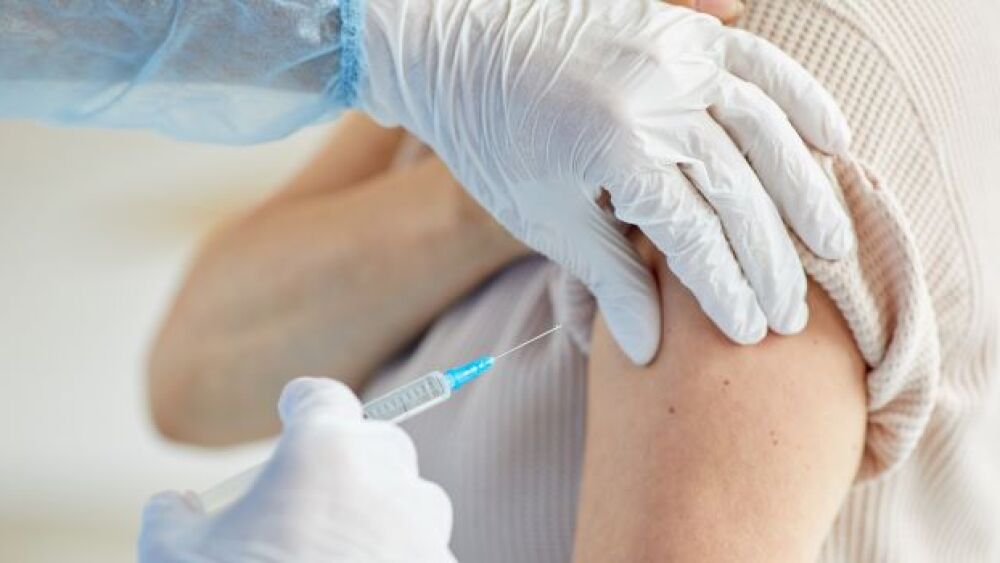The data is continuing to come in on the various COVID-19 variants, and so far the news is pretty good.
The data is continuing to come in on the various COVID-19 variants, and so far the news is pretty good. Pfizer and BioNTech announced that their COVID-19 vaccine appears effective against an engineered virus developed with three key mutations found in the South African variant. This was conducted in a laboratory test by Pfizer and the University of Texas Medical Branch (UTMB).
Although the data has not yet been peer-reviewed, it demonstrated a less than two-fold decrease in antibody titer levels. The bottom line is that the Pfizer-BioNTech vaccine is likely effective in neutralizing the E484K and N501Y mutations found in the South African variant.
Last week, the companies announced that their COVID-19 vaccine was probably just as effective against the variant strain of the virus, B.1.1.7, found in the U.K. The variant was believed to have emerged in the U.K. in September 2020 and is noted to be more infectious, and possibly more deadly. British scientists suggested last week that the U.K. variant may be approximately 30% more lethal than the most common strain that came out of China. But they’re not completely sure of this yet.
Earlier this week, Moderna reported yesterday that its COVID-19 vaccine offers protection against variants of the virus that are being reported. The Moderna vaccine appears to be effective against the South African variant as well as the U.K. variant, but not as well—they stated that that the virus-fighting antibody titers were sixfold less for the South African variant. As a result, Moderna is working to design a booster vaccine that could be added to its two-dose regimen that would work against the South African variant. It’s not clear yet what regulatory approval for such a scheme would be.
Moderna stated that it found “no significant impact on neutralizing titers against the B.1.1.7 (U.K.) variant relative to prior variants.”
Like Moderna, Pfizer and BioNTech said that although their vaccine should be effective against the emerging variants, they are preparing to respond if a variant emerges that looks like it would escape immunity for their vaccine.
In an interview with Bloomberg, Albert Bourla, chief executive officer of Pfizer, said, “Every time a new variant comes up we should be able to test whether or not [our vaccine] is effective. Once we discover something that it is not as effective, we will very, very quickly be able to produce a booster dose that will be a small variation to the current vaccine.”
Because their experiments were not on a full mutation of the South African variant, they are currently engineering one with a full set of mutations and believe they will have data from that test in about two weeks.
Unfortunately, researchers at Columbia University conducted a study—also not yet peer-reviewed—using a different methodology, and their study found that antibodies generated by the vaccines were significantly less effective against the South Africa variant. The Columbia study utilized a pseudovirus based on the vesicular stomatitis virus, a different type of virus, according to UTMB’s Pei-Yong Shi, author of the Pfizer-BioNTech study. He believes that the results in pseudoviruses need to be validated using the real virus.
The Pfizer-BioNTech study also demonstrated even better data against several key mutations from the U.K. variant. They are also working on an engineered virus with the full set of mutations for that variant as well.
Yet another variant, this one originating in Brazil, dubbed P.1, has shown up in the U.S., specifically in Minnesota. The individual had recently traveled to Brazil. Scientists seem even more concerned about this variant than they were about the South African variant. A study in the journal Science estimated that 76% of the population of Manaus, Brazil had already been infected, which should bring it close to herd immunity. But there are concerns that the P.1 variant is able to dodge the human immune system, although there isn’t much evidence to support that yet.
The Brazil variant “is probably the one causing the most concern among people watching this,” said William Hanage, an epidemiologist at the Harvard TH Chan School of Public Health. “It is fair to say that P.1 is the object of very, very serious attention and concern among epidemiologists. We don’t know why it has been so successful in Manaus.”
Most of the existing COVID-19 vaccines focus on the SARS-CoV-2 virus’s spike (S) protein. The virus uses this protein to latch onto the ACE receptor on human cells, acting like a key in a lock, to enter the cell, where it can begin reproducing itself. In the case of both the Moderna and Pfizer-BioNTech vaccines, they use messenger RNA (mRNA) to code for what is called an epitope, or a particular section, of the S protein. The concern is whether there will be mutations in those specific epitopes, causing the vaccines to be ineffective against new strains. One advantage of mRNA vaccines is they can be modified quickly to adapt to these new strains, although whether they would need to undergo extensive clinical trials and approvals is not clear.
Viruses mutate, and the more widespread they are in large populations, the more likely they are to mutate. The vast majority of those mutations are harmless.
In order to slow the spread of new strains into the U.S., President Biden issued restricted travel from South Africa and re-established a ban on most travel into the U.S. from Europe, the U.K. and Brazil.





